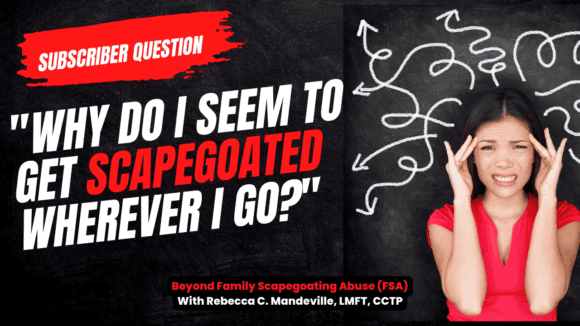When Abusers Depower the Scapegoat Child (What My Research Revealed)
Have you ever been called crazy or emotionally or mentally ill by members of your own family, either to your face or behind your back? If so, you’re not alone, as my latest research results on this particular aspect of family scapegoating abuse (FSA) attests…




